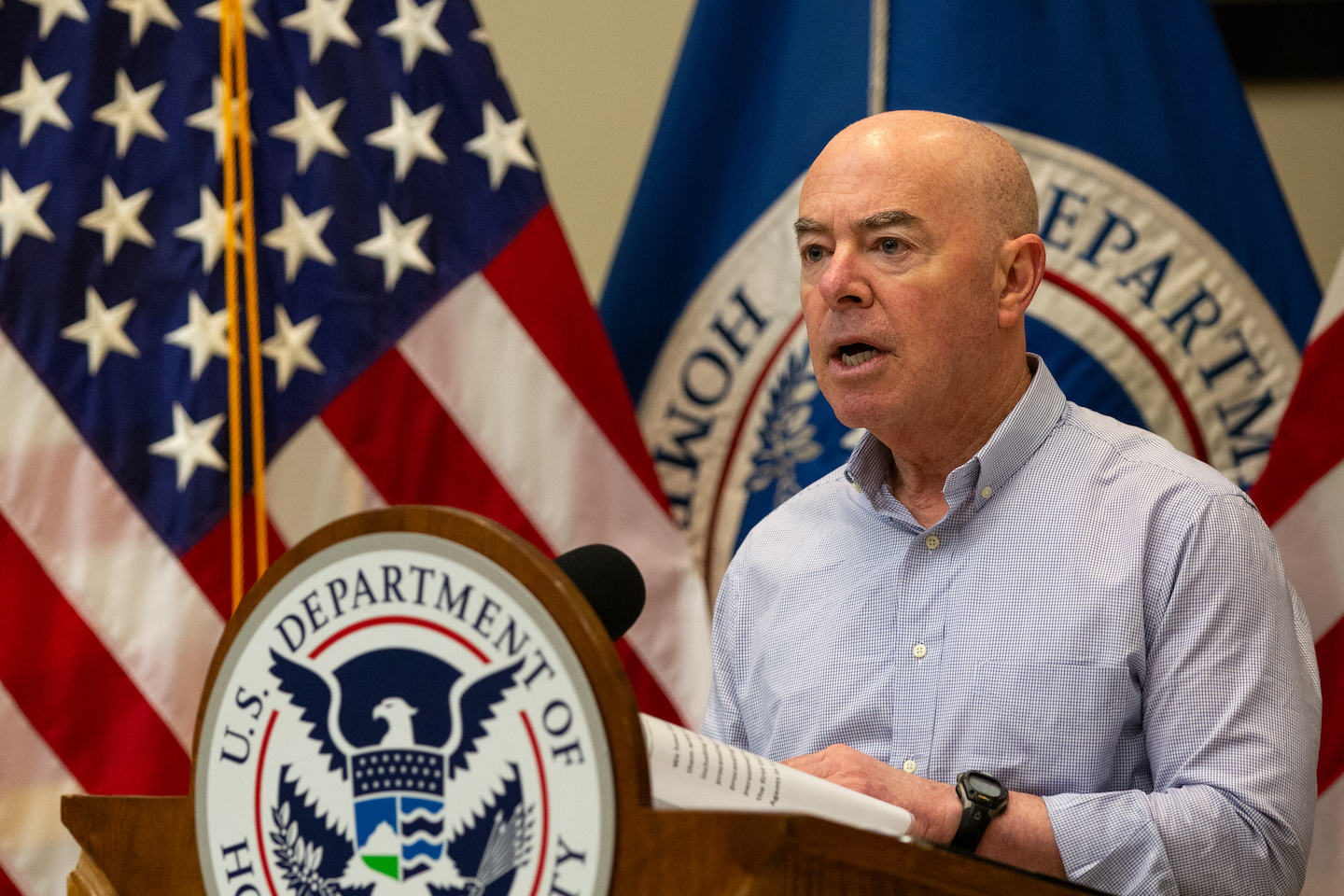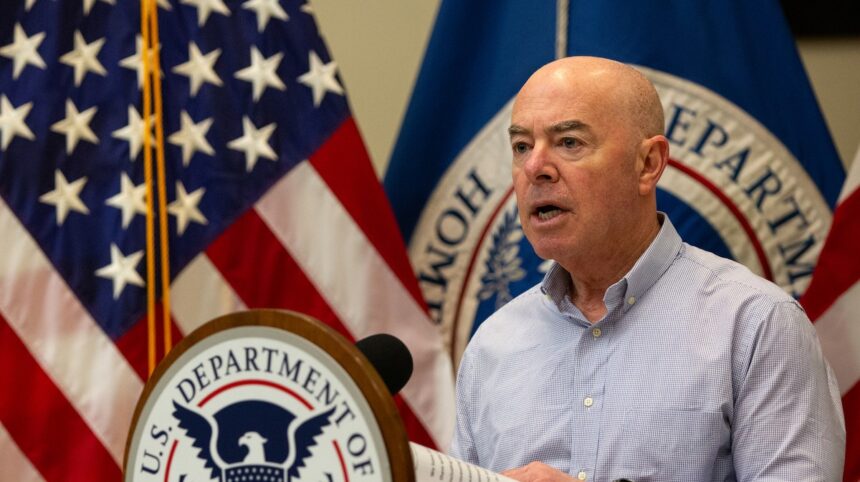
Proponents of the racist “great replacement” theory are gloating after the GOP-led House of Representatives narrowly voted to impeach DHS Secretary Alexander Mayorkas on Tuesday.
All but three Republican House members voted to impeach Mayorkas for allegedly failing to enforce immigration laws, making him the first cabinet member to face impeachment in almost 150 years.
The proposition will most likely be squashed when it goes before the Democratic-controlled Senate for trial. But the vote alone has bolstered the spirits of the far right, which sees it as further proof that it has allies in Congress.
“Big news,” white supremacist Nick Fuentes said on a livestream Tuesday. “The House has finally voted to impeach the Jewish DHS secretary Alexander Mayorkas.”
“Got 'em,” white supremacist Jason Kessler, one of the organizers of the violent 2017 Unite the Right rally in Charlottesville, wrote on Telegram. The Jew Mayorkas has been impeached.”
“Bolshevik Mayorkas now must be tried [for] treason,” wrote conspiracy theorist and anti-vaxxer David Wolfe on Telegram. “Will the Senate try him?”
The “great replacement” conspiracy theory claims that there is a nefarious plot to diminish the influence of white Americans via immigration. In its most extreme iterations, Jews are cast as the masterminds of the plot.
The far right has recently made Mayorkas, who is Jewish, the face of the great replacement conspiracy theory. Mayorkas briefly sat on the board of HIAS—the Hebrew Immigrant Aid Society—which was originally founded to help Jews fleeing pogroms in Europe, and today helps refugees and at-risk immigrants get settled in the United States. The far right also views the organization as a key facilitator of “the great replacement.” The white supremacist who opened fire on the Tree of Life synagogue in October 2018, killing 11, railed against HIAS online before his deadly attack.
GOP members of Congress and right-wing commentators have repeatedly accused Mayorkas of “intentionally” facilitating an “invasion” of the U.S.
In an appearance on Steve Bannon’s “War Room” podcast, Rep. Marjorie Taylor Greene called on the Senate to “remove this traitor [Mayorkas] who has invited the invasion of America.”Former Trump advisor Stephen Miller wrote on X that Mayorkas will “be tried before the Senate, the nation and history of his sinister role in masterminding Biden’s invasion of our Republic.”
“The kind of damage he’s done to cities and families is something you expect from a hostile adversary looking to destabilize and destroy America,” said Texas Rep. Beth Van Duyne in a first impeachment hearing last week, which resulted in a failed vote.
Earlier this month a coalition of Jewish organizations, including HIAS, released a statement expressing alarm about what they perceived as the normalization of great replacement conspiracy theories and antisemitism in relation to efforts to impeach Mayorkas.
“We now see Members of Congress and other leaders arguing that Secretary Mayorkas is intentionally orchestrating an “invasion’ and the ‘replacement’ of Americans,” they wrote.
“These dangerous, dehumanizing conspiracy theories have fueled a cycle of deadly violence against Jewish, Hispanic, Black, Muslim, and other communities in recent years – and we are deeply concerned that such bigotry and divisiveness will only make our community, and so many others, even less safe at this tenuous moment.”
The great replacement conspiracy theory was paraded through the streets of Charlottesville in August 2017, when neo-Nazis and white supremacists chanted “you will not replace us” and “Jews will not replace us.” It has since had a profound influence on white supremacist terrorists; it was referenced by Tree of Life shooter, by the man who opened fire on two mosques in Christchurch, New Zealand in March 2019, by the man who targeted Latinos at a supermarket in El Paso, Texas, in August 2019, and by the man who opened fire on Black supermarket shoppers in Buffalo, New York, in May 2022.
Despite the clear links between the conspiracy theory and violence, in recent years the “great replacement” narrative has made its way out of white supremacist online forums and gained ground in mainstream political rhetoric. Multiple polls have found that half of Republicans believe in the core tenets of the conspiracy theory—and those same tenets have made their way into recent speeches by former President and presumptive GOP presidential candidate Donald Trump. It was even explicitly embraced by former GOP presidential candidate Vivek Ramaswamy during a debate.
Mayorkas stands accused of releasing migrants into the U.S. when they should have been detained, and lying to lawmakers about the situation at the border—both allegations he denies.

